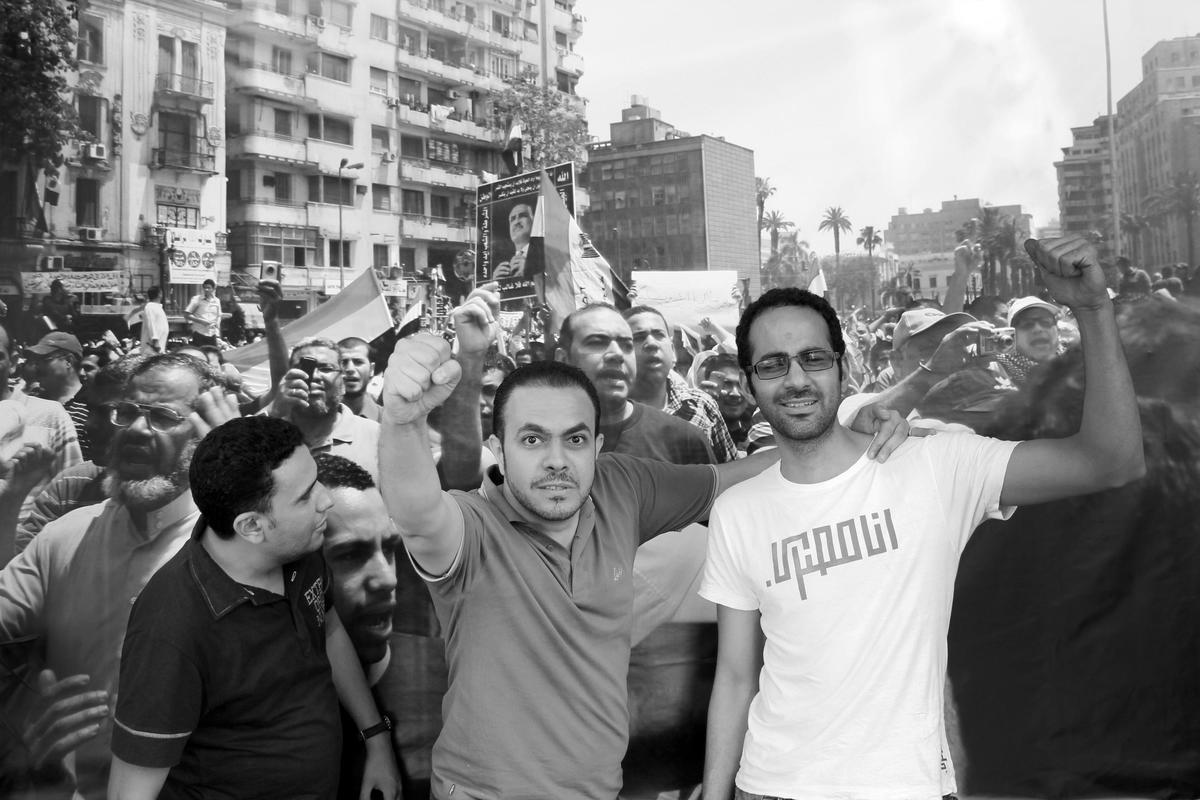“We’re both strangers in this place, eh?” Haitham smiles at you, gesturing toward Esna’s unpaved main street. He explains that he has spent the past three days traveling the sixty kilometers from Luxor, stopping in villages along the way to sell cheese made from water buffalo milk from the back of his donkey cart. The cheese is stored in clay jugs filled with brine. As the day warms up, the jugs sweat, keeping the cheese soft and cool. After spending most of the afternoon walking the streets of Esna shouting “Cheese! Cheese! CHEESE!” at the top of his lungs, hoping that the women at home in their apartments will hear and send their children down to buy some, he is tired. “Come to the market with me,” he says. “You’ll meet my friends and we can have dinner.”
You offer to pay for it, sending a runner off with some money, while Haitham introduces you to his friends Musa and Chocolata. They’d made the journey together, rounding their carts into a makeshift circle at the end of each day, just as they have done tonight on the periphery of the Esna marketplace. Soon the runner returns with several plastic bags filled with beans, bread, spiced Jew’s mallow, and some chicken. It is more than enough for four, but you’re surprised the money didn’t go further. Haitham brings out some of his cheese, which is firm and very salty.
After dinner, Haitham goes off for a time, leaving you to chat with Musa and Chocolata. “Esna is really a village,” Chocolata explains. “Nobody is educated and everyone is poor. Most people don’t even have a water buffalo to milk, which is why our business is so good.”

“And just look at all of these empty apartment buildings,” adds Musa, waving his hand to encompass the entire area surrounding the market, a zone filled with desolate concrete frames six stories high. “The Ministry of Housing was supposed to finish those for the people, but who knows where the money went?”
You chat about the NATO intervention in Libya, about the death of Osama bin Laden, which was announced earlier that day. Though they do not have a television or a radio on their donkey carts, there’s always enough banter in the streets where they work to stay up to date. As for the revolution? “We had a great party after Mubarak left,” says Musa. “We are definitely proud to be Egyptian now,” adds Chocolata, “but, aside from fewer tourists in Luxor, things haven’t changed much down here. People want to eat cheese just as much after the revolution as they did before. And compared to all these ignorant people in Esna, our life is pretty good.”
Musa laughs. “Unless the next president can convince people to eat more cheese, the revolution won’t make much difference to us. Everything will be just as it always has been.”
Haitham returns, pulls a package of white pills out of his pocket. He bites each one in half and passes them out to his friends. So that’s where the rest of your money went. Chocolata looks doubtful. “Is this stuff Chinese?”
“No, no,” Haitham insists. “This stuff is genuine.” Apparently satisfied, Chocolata swallows his with a swig of cheese brine.
“What is that stuff?” you ask.
“Oh, just something to help us sleep.” says Musa. “Do you want some?” You graciously decline.
The cheese men roll out a large mat on the packed earth between their carts and produce several pink, flower-printed blankets. You ask if you can join them for the night. “No problem,” says Haitham. “Just remember that the mosquitoes can be annoying because we’re so close to the canal.” They wrap themselves from head to toe in the blankets and stretch out on the ground, woozy from the pills.
Haitham is right — the mosquitoes are annoying. As soon as the sky is gray enough to see by, you hit the road. On your way out of town you pass a poster, high on a telephone pole: Hosni Mubarak welcoming visitors to Esna. From his perch, he greets the rising sun in a black suit and sunglasses, as if nothing at all has changed.